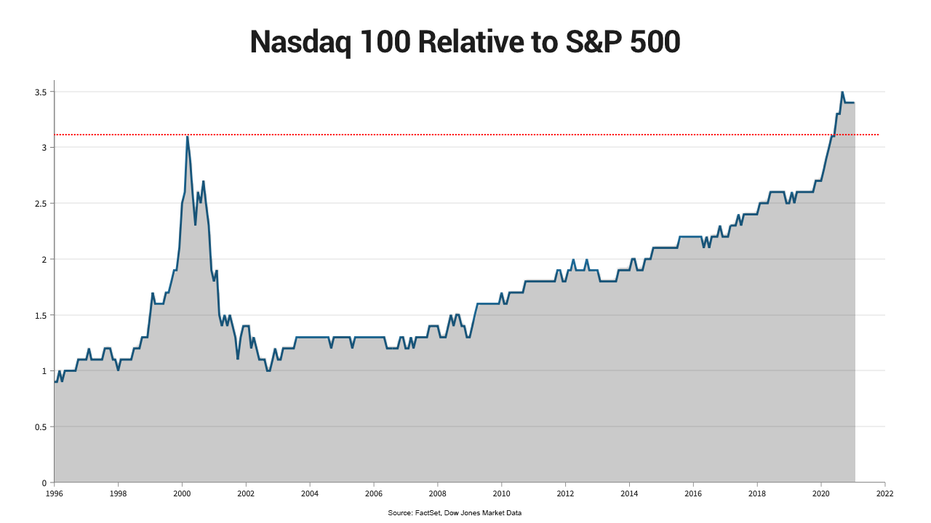Stock market bracing for 'regime change' amid Washington power shift: Gundlach
Mega-cap tech stocks are no longer market leaders
A sea of change is set to wash over the U.S. equity market as President-elect Joe Biden prepares to enter the White House, according to billionaire bond fund manager Jeffrey Gundlach.
Market trends that began in 2017 and 2018 in anticipation of President Trump’s historic tax cuts have already started to reverse. Trump’s Tax Cuts and Jobs Act reduced the top corporate tax rate to 21% from 35% and enticed businesses to bring back $1 trillion of overseas cash.
“I think this is a harbinger of significant sort of regime change for markets,” Gundlach, CEO and chief investment officer of Los Angeles-based DoubleLine Capital, which has $148 billion in assets under management, said during a conference call Tuesday evening.
MARK CUBAN PREDICTS BITCOIN, TOP CRYPTOS TO THRIVE LIKE TECH-BUBBLE SURVIVORS
The red-hot mega-cap technology stocks, including Amazon Inc., Apple Inc., Alphabet Inc., Facebook Inc., Netflix Inc. and Microsoft Corp., that have powered the stock market higher since 2018 and benefited from the work-from-home environment caused by lockdowns aimed at slowing the spread of COVID-19 have cooled.
Recent action has been sideways to lower and could result in a so-called throw over where the Nasdaq 100 versus the S&P 500 barely eclipses its 2000 peak and is then rejected.

While the jury is still out on such an outcome, its occurrence would be an “extremely powerful sign of trend change,” Gundlach said.
CLICK HERE TO READ MORE ON FOX BUSINESS
But the leadership of mega-cap tech stocks isn’t the only change that is taking place under the surface of U.S. equity markets.
The small-cap Russell 2000 index gained 18% last year, outperforming the S&P 500’s 16% advance, and has continued to lead in early 2021.
GET FOX BUSINESS ON THE GO BY CLICKING HERE
Gundlach pointed to research from Goldman Sachs Group research that shows the strong-balance-sheet companies that had outperformed from Trump’s 2016 election win through the 2020 election are now underperforming their weak-balance-sheet counterparts.




















